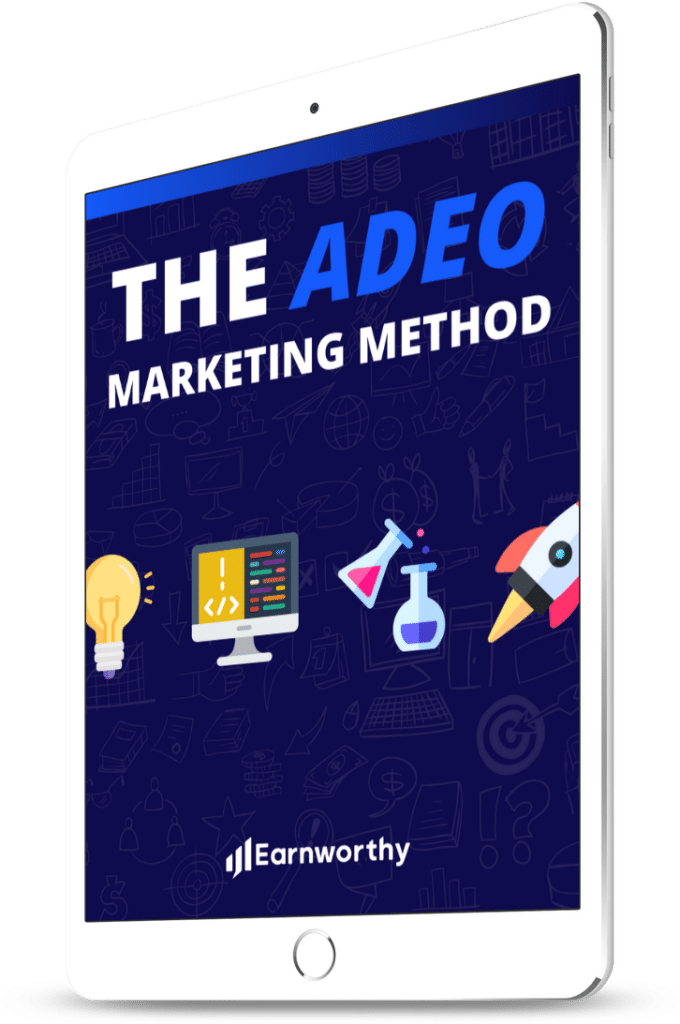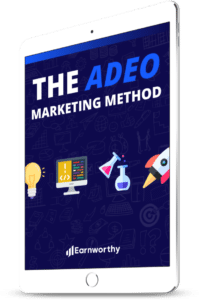
Every now and then, marketers tell little white lies to themselves in order to keep doing things the way they’ve always been done. I’m guilty of it, and if you’re a marketer, chances are you are too.
Below, I’ve compiled some of the most popular white lies that I’ve heard from marketers over the years. Enjoy!
“The only thing that matters is building my email list”
Let’s really think about this one for a minute. Sure, it’s important to build your email list, regardless of what you’re selling.
But why is it important?
It’s important primarily because we live in a very crowded and noisy world, yet people still pay attention to their inbox.
Basically, email matters to marketers because email matters to consumers. Email gets attention, for now. It has not been completely “ruined” by marketers yet.
For instance, do you read every update in your Facebook or Twitter feeds? Of course not.
But do you at least quickly scan through every email in your inbox? Most likely, the answer is yes. And if you’re like me, you taker it a step further and get your inbox to zero on a daily basis.
So, email only matters because it helps marketers gain attention over and above anything else out there, even Facebook ads.
Email works at getting our attention for now, but don’t assume that will always be the case. Therefore, it’s a lie if we tell ourselves that our email lists are the ultimate end goal. They’re not.
The end goal is attention. Capture attention from your target market, regardless of where it is.
“Popovers aren’t annoying”
Disclaimer: I have popovers on this site (using OptinMonster). I am not anti-popover. But I’m also not going to tell you that they aren’t slightly annoying.
Mind you, they’ve certainly gotten a lot better. Exit intent technology allows marketers to control when popovers show up. This has certainly helped reduce their intrusiveness.
But does that mean they’re awesome?
Because they just work so well.
Yeah, that’s right. Popovers work. In fact, my main popover ad converts at a higher rate than any other call-to-action on my blog. So as a marketer, we are almost foolish if we’re not using them.
Just be careful to limit when and where they show up. And always set the cookie duration to 30 days or more, so that the same user doesn’t have to see the same popover every time they visit.
Just stop telling yourself that popovers aren’t annoying. Let’s call them what they are. They’re slightly annoying, but they work. End of story.
“I can’t succeed with Facebook unless I pay for ads”
I recall hearing marketers complain about this about a year ago:
“Facebook won’t let me reach the audience I worked so hard to build.”
“Facebook is trying to force me to pay to send an update to my own fans.”
Well, guess what? As marketers, we did this to ourselves. We ruined Facebook. We tried to turn it into a giant billboard for our products and services. So what did you think would happen?
After all, Facebook cares about the user experience more than (almost) anything else. They need users to enjoy their time in the news feed, so that they’ll stay longer and consume more ads.
So of course Facebook needed to create ways to limit how many “look at me” and “buy my product” posts show up in news feed.
They did this subtly over a long period of time, by adjusting the algorithm that determines what shows up in our news feeds.
As long as you keep creating highly relevant and valuable content for your specific audience, you’ll gain some traction and growth over time. Slow and steady wins the race.
I wouldn’t call it quits on Facebook just because your organic reach is down. Keep in mind, there are many other reasons to be on Facebook as well. For starters, most consumers have come to expect brands to have a professional presence on Facebook.
And if you’re against Facebook ads, don’t be. There are some extremely cost-effective ways to create buzz around your brand.
One way in particular is through the creation of Facebook custom audiences and lookalike audiences, but let’s save that for a later discussion.
“I don’t have time to blog”
This is something I hear all the time. Usually from a marketer who is talking about their website.
They’re all about content marketing, inbound marketing, etc., yet the last time they’ve personally pushed the publish button on a post was six months ago. You get the idea.
This just doesn’t fly. You need to practice what you preach, especially in such a highly competitive field as digital marketing.
First of all, start writing down every idea you have for a blog post, as soon as you can safely jot it down.
For instance, I get a fair number of my blog post ideas (including this one) when I’m at the gym in the morning working out. I immediately capture it in my favorite note taking app, Evernote, so that I don’t forget about it later.
If you do this, you’ll find that you always have something to write about, because you’re bound to have more blog post ideas than you have time to actually write.
Next, make sure you’re scheduling out time on your calendar for blogging, or just writing in general.
I try to blog either very early in the morning or very late at night, at least three times a week. Sometimes I’ll publish those posts here on my blog, but sometimes I’ll publish them elsewhere as a guest post.
The point is, try to get into the habit of writing on a weekly basis.
A great tool that can help you do this is called 750 Words. This online tool will send you daily nudges reminding you to write 750 words or more, every day. There’s a whole lot more to the service, so check it out. I highly recommend it if you’re serious about your writing habit.
Can you relate?
Okay, so maybe some of these “lies” hit close to home. If so, hopefully this article opened your eyes to some new ways to look at each situation, so that you can test out some new strategies and tactics.
After all, a huge part of marketing is testing new things and seeing what works, is it not?
And writing articles like this one is always a test for me. I never really know what will resonate with my audience until it is posted. So I’d love to hear your thoughts.
Do you want to see more stuff like this? Let me know on Twitter or via email.





